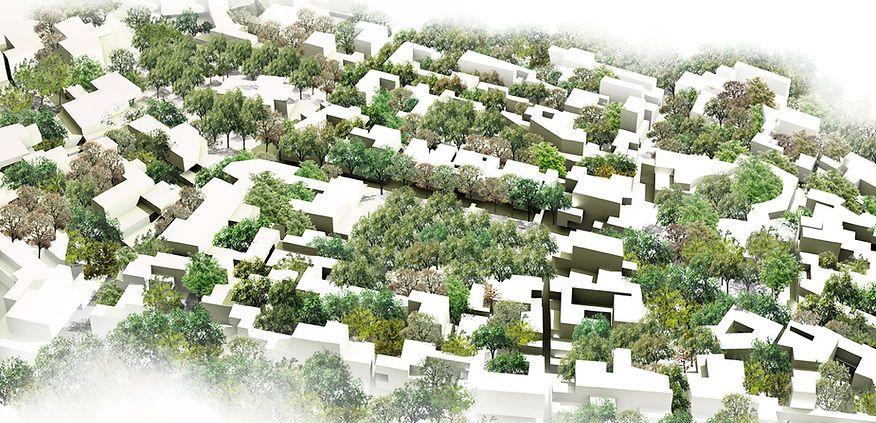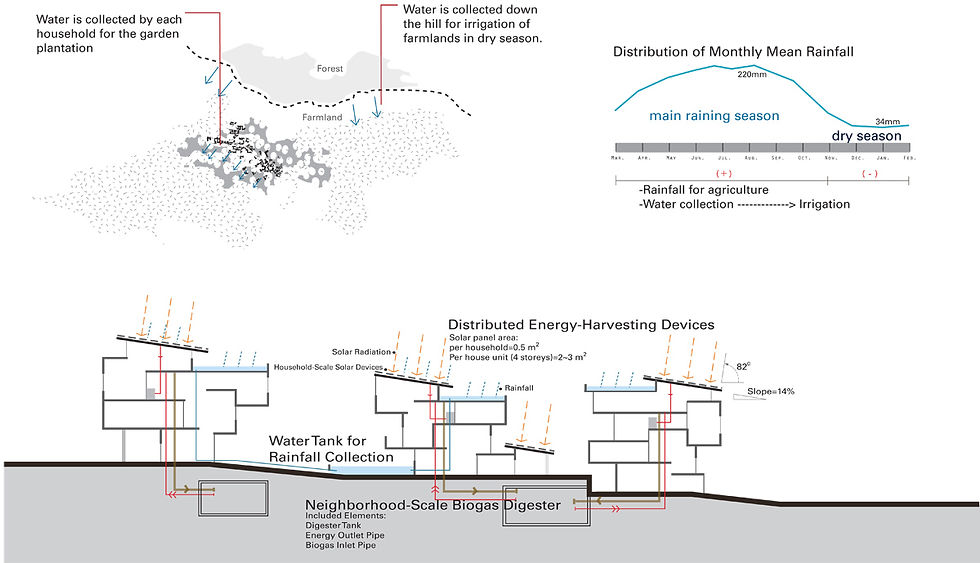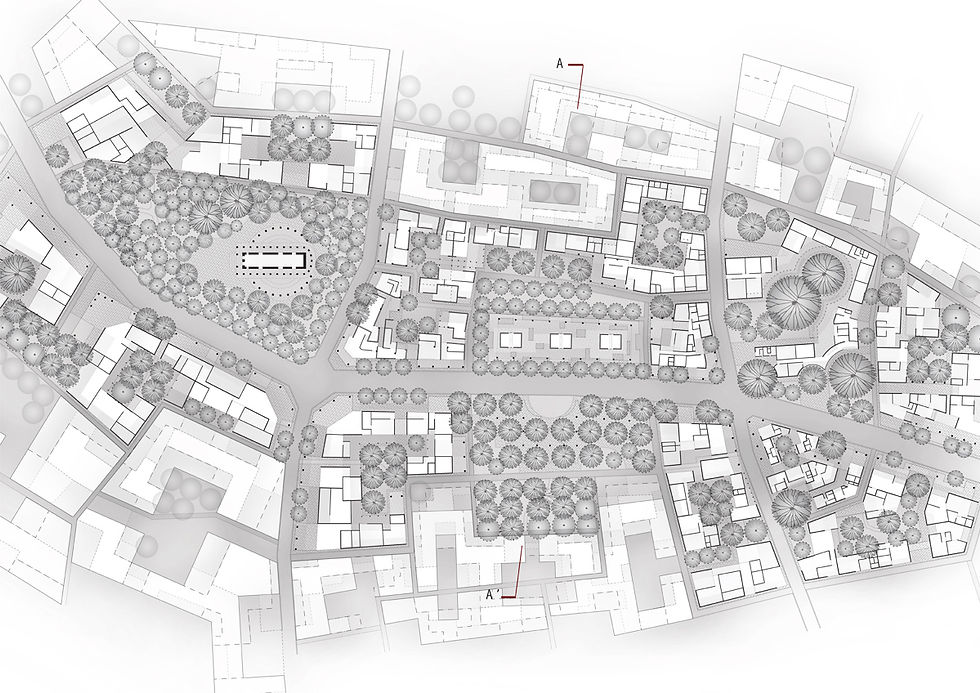FORESTICITY

In the past, Ethiopia was known for its wealth of natural resources; however, this situation changed during the last century as huge tracts of land were claimed for agricultural use. Severe soil erosion and degradation reduced the fertility of the land, lessening agricultural productivity. Deforestation has had a major impact on both the country’s ecology and its economy. Confronted with this condition, we propose Foresticity, a project that uses reforestation as an urban design strategy for Ethiopia. This proposal for a new settlement provides benefits not only for the inhabitants, but also for the entire ecological system. When reforestation occurs in conjunction with the expansion or generation of cities, the growth of those cities acts as a tool for forest regeneration. Ultimately, cities become a means to spread forests throughout the country.
Open spaces for public activities are established, thereby modifying the surrounding microclimate. Both the city and the forest will have grown to produce an interdependent urban environment.
Cities can benefit both economically and ecologically from reforestation. Trees provide energy resources and construction materials, increasing income for the settlement. Intercropping improves the quantity and quality of agricultural products. The benefits provided by reforestation are much greater than typically perceived and function as an essential generator for a sustainable, resilient city and environment. By combining the reforestation process with the development of a city, a critical symbiotic relationship is produced where each can benefit from the other and excel.
Design team: Dimitris Anagnostopoulos, Hui-Ju Lee


